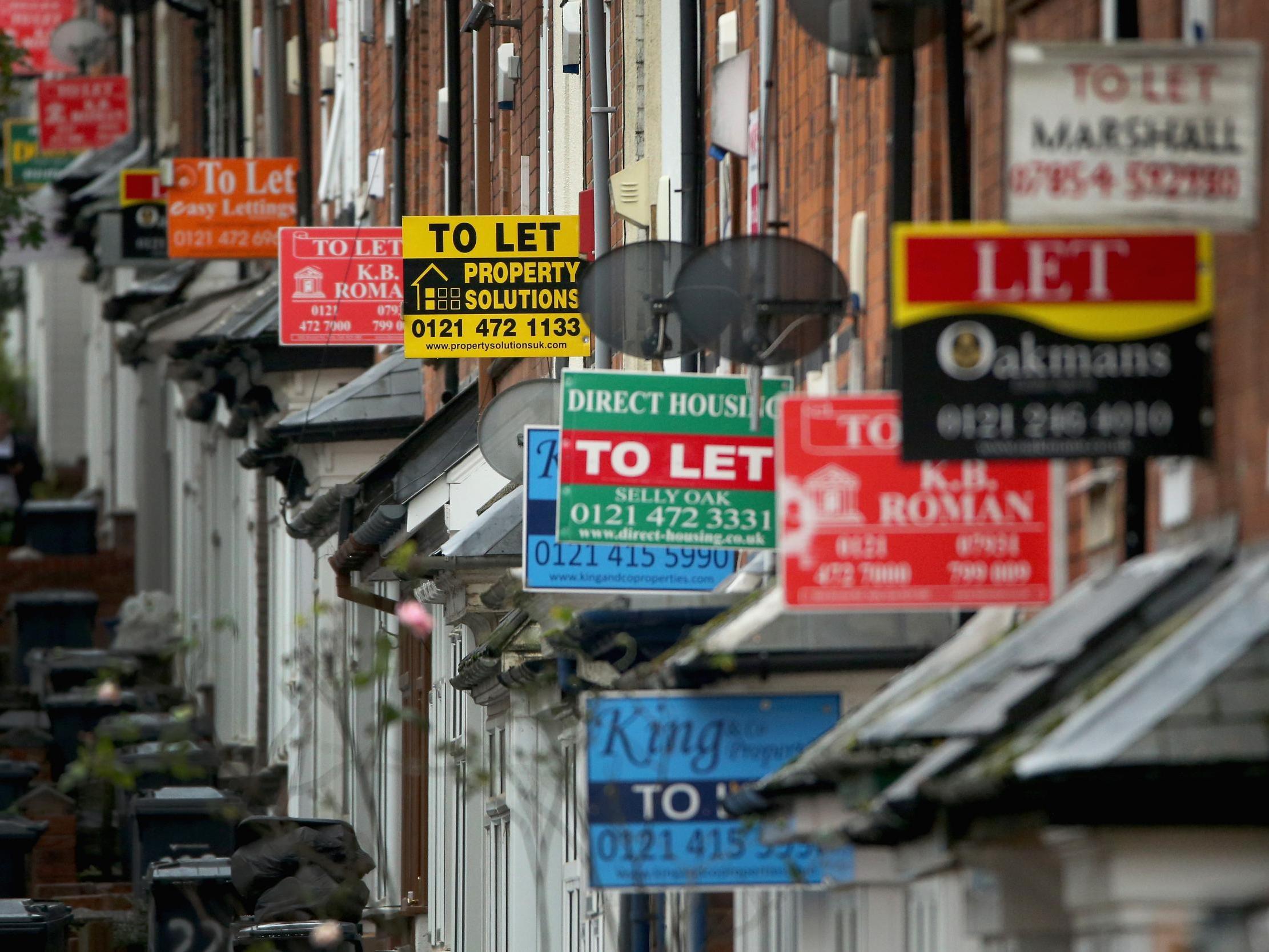Tenant fee ban to save renters £192m a year, study finds
'Until this point, the majority of letting agents have essentially been taking extra money above and beyond any justified fees for no additional work'

Your support helps us to tell the story
From reproductive rights to climate change to Big Tech, The Independent is on the ground when the story is developing. Whether it's investigating the financials of Elon Musk's pro-Trump PAC or producing our latest documentary, 'The A Word', which shines a light on the American women fighting for reproductive rights, we know how important it is to parse out the facts from the messaging.
At such a critical moment in US history, we need reporters on the ground. Your donation allows us to keep sending journalists to speak to both sides of the story.
The Independent is trusted by Americans across the entire political spectrum. And unlike many other quality news outlets, we choose not to lock Americans out of our reporting and analysis with paywalls. We believe quality journalism should be available to everyone, paid for by those who can afford it.
Your support makes all the difference.The tenant fee ban could save UK renters £192m a year, according to new analysis.
There are some 860,000 rental transactions a year across the UK, with the average tenant being charged £223 in letting fees, researchers studying government data found.
Under new laws set out in the Tenant Fee Act 2019, landlords and letting agents will not be permitted to charge exorbitant, arbitrary fees, saving renters £191,780,000 each year.
“For far too long letting agents have essentially been writing their own rules when it comes to the fees they charge tenants for all manner of things, and as a result, it has left a very sour taste in the mouths of many in the rental sector,” said Tom Woollard, co-founder and chief executive of Bunk, which carried out the research.
“The ban on tenant fees is undoubtedly a step in the right direction as we now have a clear piece of legislation that letting agents, landlords and tenants can all adhere to with a good level of accountability when this isn’t the case.
“Until this point, the majority of letting agents have essentially been taking extra money above and beyond any justified fees for no additional work and so the thought that they might try and recoup this ‘lost’ revenue through rental hikes or any other means is quite laughable. Only time will tell if this does happen and there will no doubt be a knee-jerk reaction of some sort by the industry.
“Hopefully it will act as a catalyst for the sector to stand up and show it can provide a good service for a reasonable fee, and that letting agents still hold some value in a world where technology and innovation will undoubtedly render them obsolete.”
A recent study by ARLA Propertymark, formerly the Association of Residential Letting Agents, showed that 70 percent of letting agents surveyed were looking to increase their costs towards landlords as a result of the Tenant Fee ban.
Some 87 percent of letting agents believe rent prices will increase as a direct result of the ban, putting pressure on some of the country’s more vulnerable tenants.
However, in Scotland where the ban was introduced in 2012, this has proved not to be the case
Research by housing charity Shelter showed that just two percent of landlords increased rents in response to the ban.
SWNS
Join our commenting forum
Join thought-provoking conversations, follow other Independent readers and see their replies
Comments